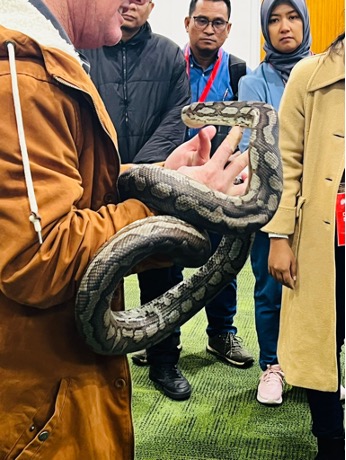
- Research project
- – Western Pacific
In early September I wrote briefly about a terrific project funded by Australia Awards Indonesia (and ultimately DFAT) that we had the privilege of leading in collaboration with Griffith University’s International Development Unit and Lean Finance. You can read that update here.
The project was entitled ‘Water Utilities of the Future’ – a bold title for a bold project that brought together water utilities, local government, state government and other stakeholders to engage in learning about how to tackle some of the most challenging aspects of water utility performance reform and enhancement facing Indonesia.
Australia Awards projects have a similar structure – they first involve a pre-workshop in the country where participants are from. This is a way to meet the participants, to listen and understand their needs and challenges in detail, to help them form groups for project work and to engage more broadly with the sector that the project addresses. For us this happened in May in Palembang.
Then the participants come to Australia to undertake a custom designed learning ‘course’ to help them learn from and discuss their needs and challenges with Australian academic and industry experts, to refine their group project objectives and intended outputs. The update we wrote in September covers this course so we won’t dwell on it here.
Following the ‘course’ there is a period of group project mentoring to help each group deliver on their planned objectives and outputs, and then a final ‘post-course workshop’ for each group to present their project achievements, and for everyone to immerse in a little more field based learning. For us that meant travelling to Bandung, SE of Jakarta, in the mountains where we worked with DFAT, KIAT, USAID, the participants, some local water utilities and of course, Australia Awards Indonesia.
It’s a real privilege being able to sit and reflectively help others think through how to think and act to address complex water management challenges. This is central to what we do at the International WaterCentre and the complexity of improving water utility performance in Indonesia is a challenge with many facets. How should country wide wastewater treatment and services be achieved? Who should pay? How? How much? How can water utilities be put on a sustainable financial footing in business model and governance terms? How best to utilise digital technologies to assist the process? And how to recruit, train and retain a skilled workforce?
The process of designing and delivering the project has really refreshed me personally. I was able to re-engage with Indonesian water utilities and national culture more broadly. In Bandung and in Jakarta I was able to meet with several of our Masters of Integrated Water Management alumni – Elisabeth Tarigan and Uty Fatmawati. I was able to experience the first fast train in SE Asia – the Whoosh running between Bandung and Jakarta in around 30 minutes as opposed to 3 hours. And I was able to deepen my appreciation of the challenges facing the water and wastewater sector in Indonesia, and more broadly.
But perhaps most of all, the experience of designing and delivering the project has reminded me of the generosity of spirit that people who work in the water sector have. In Australia we were able to bring an ex-State Treasurer, a water utility board member, dam operators, senior economic regulators, State Government policy makers, water utility executives, water utility membership associations, a private utility, wastewater treatment plant engineers and consulting engineers to meet and discuss issues and challenges with our Indonesian participants. They did so with a great spirit of collaboration and a desire to figure out how to improve services in Indonesia and in doing so to reflect upon what is working well and what could be better here in Australia.
Our Indonesian participants showed curiosity, enthusiasm, perseverance and an ability to learn quickly. In common with Australian presenters and stakeholders, our participants showed the same desire to contribute to improving the health, wellbeing and economic prosperity of the communities they serve.
What a sector to work in. I love it. We at IWC love it. Generosity, expertise and service. Common values that drive us all.
Thank you AAI, DFAT, Australian collaborators and Indonesian participants. We look forward to the iteration. Have a terrific end of 2023, and successful 2024 ahead.
The photos below show the participants in Australia learning in different ways and contexts.
Figure 1 On the first day, getting ready to learn at Griffith University
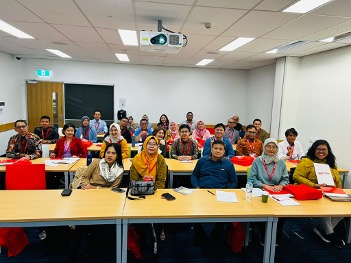
Figure 2 Working together, supported by expert knowledge
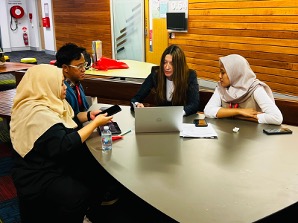
Figure 3 Presenting group project aims, outputs, intended users and approach
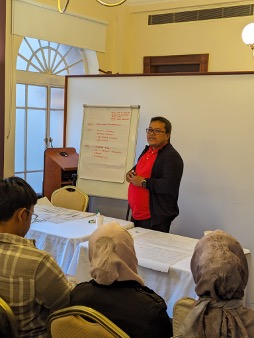
Figure 4 Learning about stormwater harvesting systems
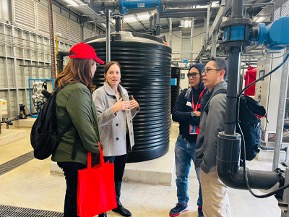
Figure 5 Asking questions about the water supply and flood risk mitigation functions of Wivenhoe Dam
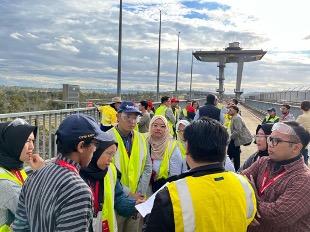
Figure 6 Up close, learning about native Australian animals
